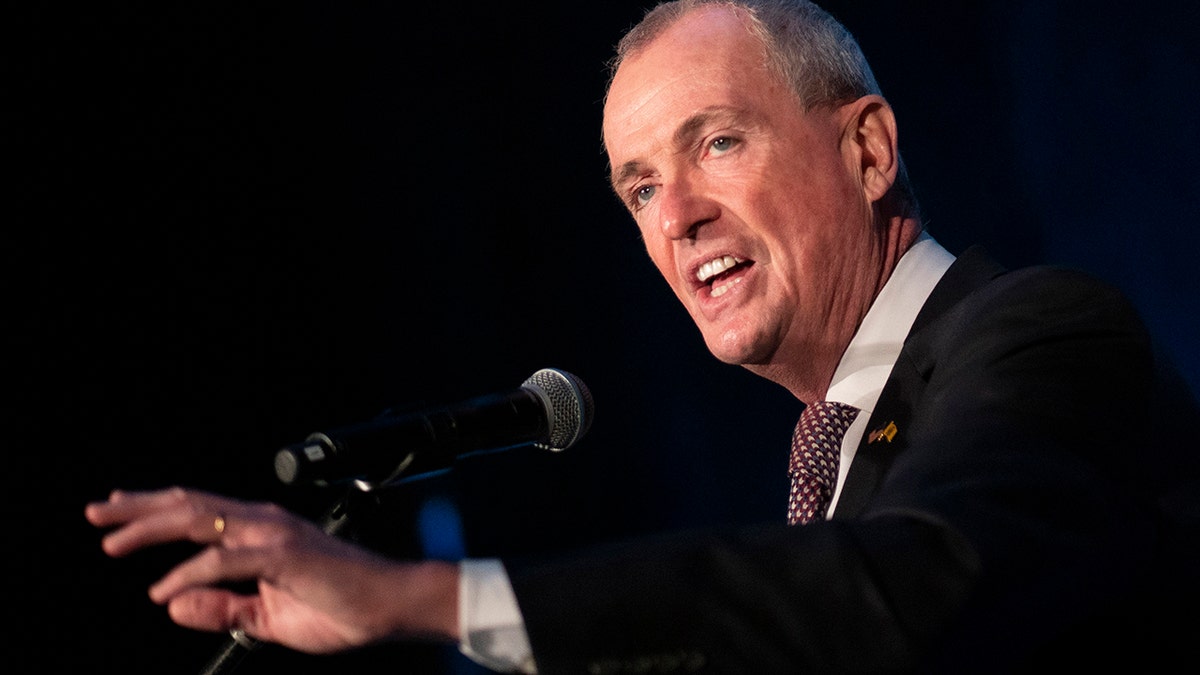New Jersey parents rip gender identity lessons for first graders: 'It's concerning'
Fox News correspondent Nate Foy speaks to concerned parents who are speaking out against New Jersey’s new sex education curriculum.
Democratic New Jersey Gov. Phil Murphy defended state education plans teaching gender identity issues to young students Monday, but said parents deserve a say in the issue.
"Can you comment on to concern parents who think that gender identity should not be taught in elementary school?" a reporter asked.
"I'd say a couple of things," Murphy began. "Number one, I think there's some sort of sense that parents have no say, and I would just say emphatically that parents deserve absolutely to have a say in this sort of stuff – Along with all other interested parties, but probably none are more interested than parents."
"Number two, I don't like the fact that some are using this as an opportunity to score political points and to further divide us," he continued. "I say that on behalf of the LGBTQIA+ communities. Let's everybody not use this to divide us."
Murphy went on to say that the education policy was not a "new development" as the standards had been passed in 2020. He acknowledged that the standards were going into effect for the first time this fall, however. He also said that if enough parents oppose the standards he would be willing to "entertain" an adjustment.
New Jersey education standards prioritized teaching second-graders about "the range of ways people express their gender and how gender role stereotypes may limit behavior." The issue was listed among school "performance expectations" for young students.

New Jersey Governor Phil Murphy delivers a victory speech to supporters at Grand Arcade at the Pavilion on November 3, 2021 in Asbury Park, New Jersey. Murphy's narrow victory over Republican gubernatorial candidate Jack Ciattarelli makes him the first Democratic New Jersey governor in more than four decades to win reelection. ( Eduardo Munoz Alvarez/Getty Images)
The education standards list a number of lesson plans for educators to use, one of which describes being able to define "gender identity and gender role stereotypes" as a "first objective" for students.
"Gender identity is that feeling of knowing your gender. You might feel like you are a boy, you might feel like you are a girl," the lesson plan states. "You might feel like you’re a boy even if you have body parts that some people might tell you are ‘girl’ parts. You might feel like you’re a girl even if you have body parts that some people might tell you are ‘boy’ parts."
Murphy's office had previously avoided questions regarding the state's curriculum, with Fox News Digital sending numerous requests for comment on Saturday with no response.
The gender curriculum is the latest controversy to mar Murphy's education record. New Jersey parents are also increasingly leaning toward Republican candidates due to COVID-19 restrictions in state schools, according to the Wall Street Journal.
Rachael Keane, a registered nurse with two school-age children, said she had never voted Republican until the 2020 election. She cited school mask mandates as the primary reason for the flip in an interview with the Journal.
"I knew I wasn’t going to vote for Murphy, but wasn’t sure if I was going to leave it blank or what," Keane told WSJ. "Then I just got angry and in the back of my head I thought, ‘F— you!’ And I voted Republican all the way down the line."
The New Jersey education struggle comes as Republican Florida Gov. Ron DeSantis fends off criticism from Democrats and the media for banning the teaching of gender identity or sexual orientation for young students.
GOP GOV. LARRY HOGAN ATTACKS RON DESANTIS, CALLS FLORIDA PARENTAL RIGHTS BILL ‘ABSURD’
DeSantis' Parental Rights in Education Act bans educators from teaching the issues to students from pre-school to third grade.













































